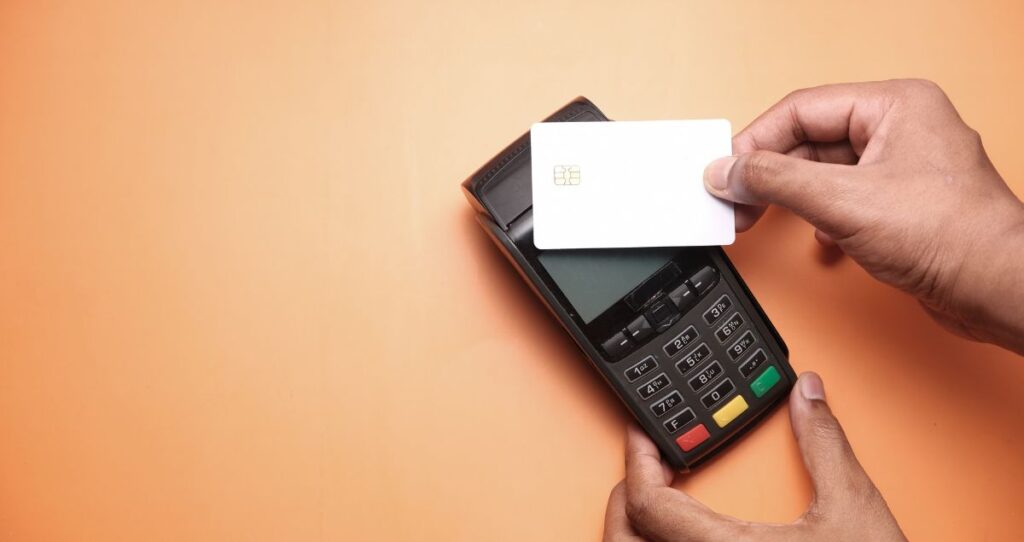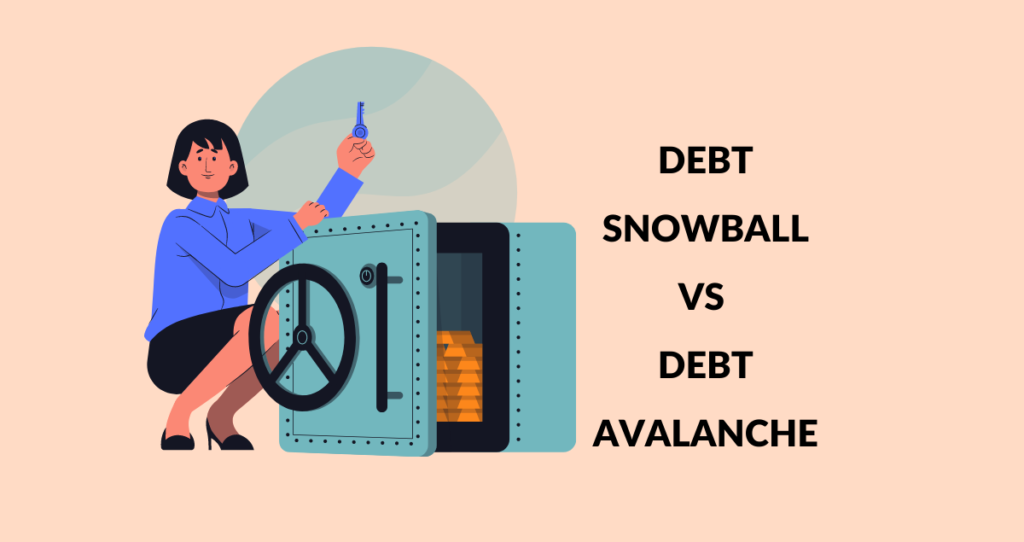A secured credit card is a type of credit card where a borrower must deposit money in order to open an account. The security deposit stays with the card issuer while the cardholder uses the credit card. In case the borrower does not make payments, the security deposit is used as collateral for the outstanding balances on the credit card.
Secured credit cards come in handy for people who cannot qualify for normal credit cards. For example, if you have no credit history or have a bad credit score(you are in the subprime category of the borrowers), your credit card options will be limited. Credit card issuers deny you credit when you pose a greater risk.
If you have bad credit, you can still enjoy the benefits of credit cards by getting a secured credit card. The major difference between a normal credit card and a secured credit card is that a secured credit card is backed by an upfront required security deposit.
What is a secured credit card and who is it good for?
Credit cards come in many forms and types. People who have an established credit history, have a good credit score and have income get plenty of credit card choices. When you don’t have a good credit history, you don’t qualify for all credit cards available on the market. One of the few options available for people who can’t qualify for normal credit cards is to get a secured credit card.
Secured credit cards are designed mainly for thin-file borrowers. When you have little to no credit history, your credit reports will have little to no information. For example, if you never borrowed money before, and your rent payments and other businesses that managed your accounts did not report your activities to major credit bureaus(Equifax, TransUnion, Experian); you will have a thin credit file (little information on your credit reports).
In this case, credit card issuers will have difficulties assessing the risks you pose as a borrower. An easy option for borrowers with bad credit or no credit history is to get a secured credit card. Secured credit cards require a cash deposit that determines and guarantees your credit limit. The card issuer might give you your deposit gradually based on how you use the card or reimburse the full amount when you close your credit account.
Secured credit cards look like other credit cards and work the same way. Just like other credit cards, activities on your secured credit card will be reported to credit reporting bureaus. For this reason, secured credit cards can help you build your credit history and improve your credit score at the same time.
What does a secured credit card mean?
The term secured on your credit card means that you must deposit money with the credit card issuers in order to open an account. The security deposit stays with the card issuer and acts as collateral in case you cannot make your payments. This means that secured credit cards are credit cards backed by a security deposit.
How to get a secured credit card?
The process of getting a secured credit card is the same as getting an unsecured credit card. Unsecured credit cards are those with no deposit requirements. To get a secured credit card, you will need to submit an application for approval and a security deposit will be required before you can open an account.
Due to limited credit history or bad credit, the credit limit might be equal to your security deposit. For example, if you deposited $300, you will get a $300 credit limit. Other credit card issuers, however, might give you a much higher credit limit compared to your security deposit.
Is my secured credit card deposit refundable?
Credit card companies have different rules and policies regarding the financial products they provide. Most lenders will refund your security deposit. You might need to consult with your secured credit card provider to make sure that your deposit will be refunded before opening an account.
Your card issuer will keep your deposit until you either close your account or earn it back in a form of a statement credit. Earning your deposit means that you get some of your deposit back over time when you use your secured credit card responsibly. Otherwise, the card issuer will refund your deposit in full when you close the account.
What are the benefits of getting a secured credit card?
Secured credit cards come in handy for people with no credit or rebuilding their credits. The following are some of the benefits you should expect from a secured credit card.
- Your deposit is refundable. Your security deposit is usually refundable. Some card issuers give you a refund when you close the account or let you earn your deposit back over time as you use your credit card.
- Secured credit cards can help you build credit. Activities on your secured credit card account are reported to three major credit reporting bureaus. This helps you build a credit history and improve your credit score.
- You can earn rewards on secured credit cards. Some secured credit cards let you earn rewards on some of your purchases.
- Good starting for people who never had credit before or those who can’t qualify for unsecured credit cards. Using a secured credit card is one step close to getting unsecured credit cards. If you never had credit cards before and you are afraid of overspending, a secured credit card can help you get started.
- Can prevent you from getting into too many credit card debts. Some credit card issuers give you a credit limit equal to your deposit. If your deposit is low and your credit limit is equally low, you will not get into too much credit card debt as fast as you would with a higher credit limit.
What are the disadvantages of secured credit cards?
Just like any other credit card, secured credit cards come with their own drawbacks. The following are some of the disadvantages of using secured credit cards.
- Fees and charges. Unlike some unsecured credit cards, most secured credit cards come with high fees
- Low credit limit. Most credit card issuers give you a limit that aligns with your security deposit. Because secured credit cards are designed for people with thin credit files, bad credit, or those who don’t want to take on too much risk, secured credit cards come with low credit limits.
- Your card issuer might not upgrade you to better credit cards. Some lenders will upgrade you to better credit cards after responsibly using a secured credit card for a while. Others, however, will not upgrade you to normal credit cards.
- Secured credit cards require a security deposit. The deposit will vary from one credit card issuer to another and the terms regarding those deposits will vary as well. Some secured credit cards come with higher deposits whereas others have relatively low deposit requirements.
- They come with high-interest rates. In 2022, the average APR on secured credit cards is 18.95% which is relatively high.
- Debt risks. Any form of credit card regardless of what it is comes with the risks of debt accumulation. The deposit you make on secured credit cards is collateral. But it does not prevent you from getting into credit card debts. There is always a risk of getting into credit card debts when using secured credit cards.
- You can wreck your credit if not used responsibly. Activities on your secured credit card get reported to major credit bureaus. This means that if you do not use your card responsibly, you will hurt your credit history and lower your credit score.
Is a secured credit card good for you?
Secured credit cards are not good for everyone due to their deposit amount and low credit limits. However, there are people who benefit greatly from secured credit cards. If you are wondering whether you should consider a secured or unsecured credit card, the following tips can help you decide.
- You have bad credit. Having bad credit automatically disqualifies you from many other forms of credit cards. Although there are some credit cards designed for people with bad credit, you should stay away from them. These cards come with excessive fees and charges. On top of that, you pay hefty interest rates. For this reason, it is a good idea to have a secured credit card if you have bad credit.
- You are rebuilding your credit. If you are rebuilding your credit, a secured credit card will help you repair your credit. That is you will still get the same benefits from unsecured credit cards such as boosting your credit score without having excessive credit spending. In addition, a low credit limit will help you manage your credit card spending while rebuilding your credit.
- You have no credit at all. When you have no credit history, credit card issuers tend to deny you credit in general or give you a much lower credit limit until you have built enough credit history. Having no credit history also indicates that you are not experienced with how these financial products work. That is why a secured credit card will be a good fit for you. As you use your credit card and pay your credit balances on time, your credit score will go higher. After building an adequate credit history, you will then move to normal credit cards.
- You have excessive spending habits. Low limits on secured credit cards will help you manage your spending habits.
How to properly use secured credit cards?
It is safe to say that credit cards operate the same way and follow the same principles whether secured or not. There is a certain principle you must follow when using credit cards especially secured credit cards. Having a secured credit card means you are either rebuilding your credit, have bad credit, or don’t have a credit history. That is why you should be careful about how you use secured credit cards. Otherwise, you might end up missing all the benefits you intended to have.
The following are tips that will help you use secured credit cards properly
- Make your payments on time. Whether you have a secured or an unsecured credit card, you should always make your payments on time. This is one of the most important steps in building credit and increasing your credit score. Payment history is the biggest factor that affects your credit score. Your payment history affects 35% of your FICO score calculation and 40% of your VantageScore calculation. If you can’t pay back the money you borrowed, you are automatically a risky borrower. Late payments will lower your credit score and hurt your credit.
- Reduce your credit utilization to under 30%. A high credit utilization rate shows that you are relying on debt to cover your expenses. In order words, you either don’t have enough income, have too much debt, or are not financially responsible. Your credit utilization affects 30% of your FICO score calculation and 20% of your VantageScore calculation.
- Do not apply for too many credit cards. When you apply for credit, lenders request to view your credit file. This results, in a hard inquiry on your credit reports which lowers your credit score. Your credit score goes lower by 5 to 6 points on average from a single hard inquiry.
- Do not carry balances on the card. Carrying balances on your credit card is a big financial mistake. This is because you end up paying APR on the balance you carried to the next payment period. Credit cards are known to have some of the highest interest rates in the lending industry. Carrying balances on your credit cards lead to debt accumulation.
What is a good secured credit card?
All credit cards are not the same. Some cards come with better terms and benefits than others. That is why you should pay attention to the secured credit card you apply for to make sure that you will get the full benefits you desire.
The following are things you should look for when applying for a secured credit card.
- Pay attention to the interest rate. You don’t want to sign up for the highest rates
- Get a card where activities are reported to major credit reporting bureaus
- A good secured credit card is one with low fees
- Look for a card with an affordable security deposit
- Look for credit cards with a grace period before interest charges are applied
- Get a card that lets you upgrade to normal credit cards
The bottom line
Secured credit cards are designed for people with bad credit, rebuilding credit, or having no credit history at all. These credit cards require a security deposit and they come with a lower credit limit compared to unsecured credit cards.
Because activities on your secured credit card get reported to credit reporting bureaus, you should always watch how you use your cards. A secured credit card will help you rebuild your credit history and credit score. Making payments on time, reducing your credit utilization rate, and avoiding excessing borrowing are a few tips you can use to keep your credit healthy and improve your credit score.







